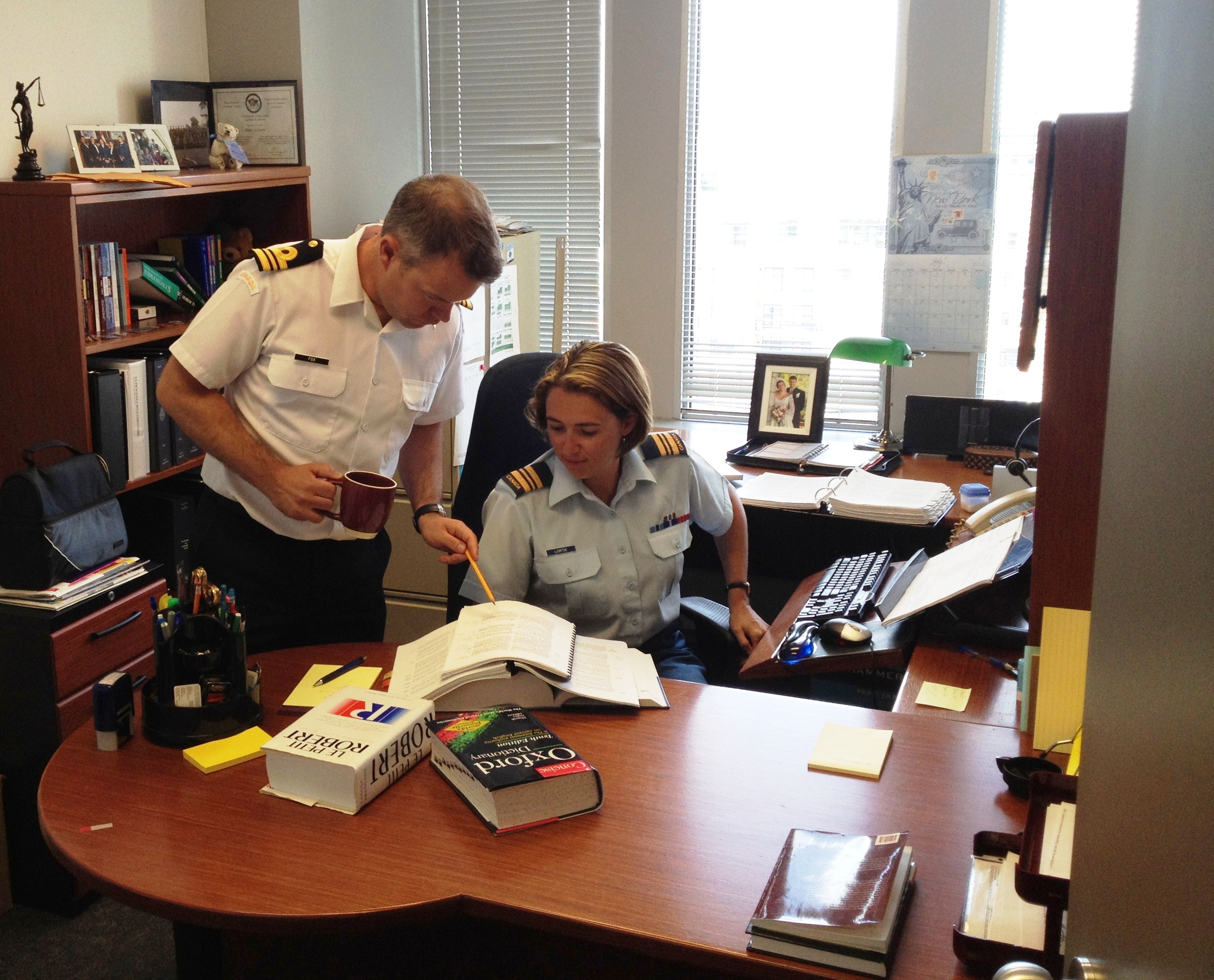ARCHIVED - Chapter 5: The Way Ahead
The 2010-2011 reporting period has been a very active time for military justice and the Office of the Judge Advocate General, and the following year promises to be no different. In keeping with the JAG’s Mission and Vision Statement, the Canadian Armed Forces (CAF) legal officers will continue to lead proactive military justice oversight, responsible development and positive change.
In the coming year, the Office of the JAG will strive to improve the fairness, efficiency, and effectiveness of the military justice system, bringing many of the initiatives commenced in 2010-2011 to fruition, and embarking on many more. Of particular note for the subsequent reporting period are the following projects, which are anticipated to be the Office of the JAG’s main efforts to further improve the military justice system.
Amendments to the National Defence Act (NDA) and to Queen's Regulations and Orders for the Canadian Forces
The NDA, and in particular the Code of Service Discipline, forms the legislative foundation of the military justice system. It sets out service offences and punishments, prescribes military jurisdiction and defines the procedure for service tribunals. The last time the NDA underwent a comprehensive revision was Bill C-25 in 1998. Since then the Lamer report on military justice, and the Standing Senate Committee on Legal and Constitutional Affairs report have each issued a series of recommendations for reform that provided the impetus for Bill C-41, the Strengthening Military Justice in the Defence of Canada Act. The Office of the JAG is committed to assisting the Minister of National Defence (MND) and the Government of Canada in moving the legislative process of military justice reform forward.
In addition to the comprehensive reform package set out in Bill C-41, it is anticipated that smaller, more focussed, amendments to the NDA may also be required in the course of the subsequent reporting period. In particular, the issue of the renewable tenure of military judges, which has been the subject of differing opinions at the court martial level, may be addressed by the CMAC.

Legal Officers consult with one another regarding proposed NDA amendments.
Military Justice – Independent Review
During the 2011-2012 reporting period, the Honourable Patrick J. LeSage, acting as the Second Independent Review Authority (SIRA), will be visiting defence establishments across the country, interviewing key stakeholders and preparing a report and recommendations for further amendments to the military justice system. The results of the SIRA process are keenly anticipated by the MND, the CAF, the Department of National Defence and all members of the Office of the JAG. Our military justice system is constantly evolving, and the independent review process is instrumental in providing guidance and direction for that evolution.
Conclusion
Our military justice system is designed to meet the inter-related objectives of justice and discipline. It must provide a relevant and useful tool to the CAF chain of command for maintaining discipline and ensuring operational effectiveness, and do so in a manner that is fair to all those involved while embodying the rule of the law and Charter values. As the statistics and initiatives outlined in this report demonstrate, the JAG continues to professionally and passionately superintend the system, and the Office of the JAG is well positioned, as Canada’s experts on military justice and military law, to lead proactive change that will ensure that our military justice system will continue to meet those objectives well into the future. Canada’s military justice system is second to none and serves as a leading example world-wide.